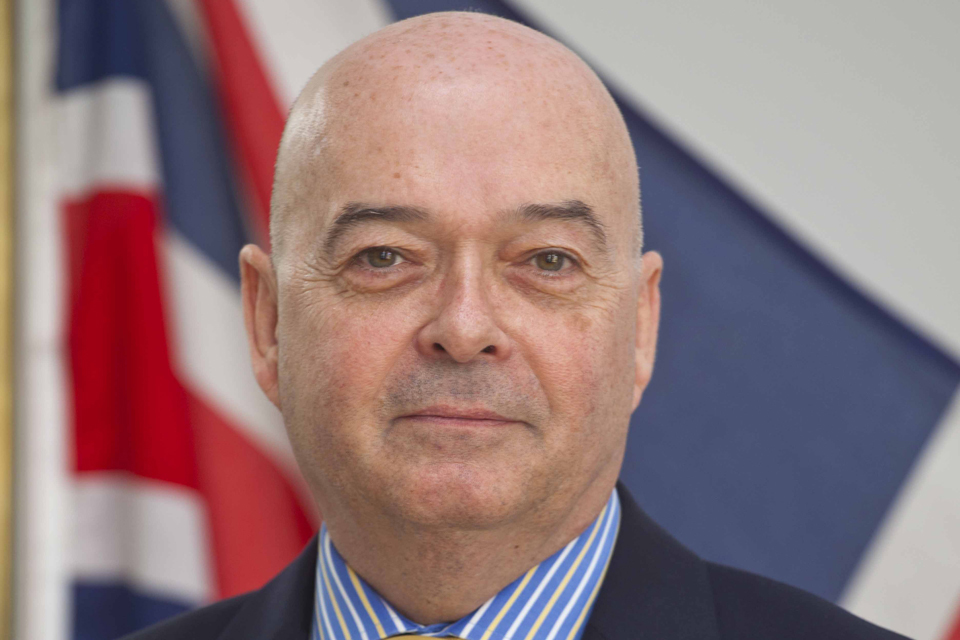Bangladesh's Rana Plaza Tragedy: High Commissioner's speech
To mark the one year anniversary of the Rana Plaza tragedy, British High Commissioner spoke at an event on April 24.

Honourable Minister for Expatriate Welfare Engineer Khandker Mosharraf Hossain,
Fellow Heads of Mission,
Deputy Director General of the ILO,
Representatives of multilateral, NGO and Bangladeshi organisations.
Ladies and Gentlemen,
Good afternoon.
In Bangladesh, in the UK, across world everyone was shocked and distressed by the appalling loss of life at Savar one year ago today.
The collapse was a wake-up call, not only to those involved in the garment industry but to everyone - including the government agencies responsible for enforcement of legislation and those of us who buy clothes made in Bangladesh. It threw the spotlight on building and fire safety, but also on the wider working conditions and rights of Bangladeshi garment workers.
One year on from the Rana Plaza tragedy, progress has been made in addressing the many challenges facing the industry. I did not imagine one year ago that so many stakeholders could work so closely together to try to make a real difference. Concrete commitments have been made by manufacturers, brands, development partners and the Government of Bangladesh.
It is only fair that we recognise this. It shows we can make progress when we all work together to achieve a common objective. We can achieve a healthy, safe and sustainable garment sector which benefits all those involved.
I wish to be absolutely clear about this point. I have said it before and I will say it again. The readymade garment industry is good for Bangladesh. It remains vital to poverty reduction and for the economic empowerment of women in Bangladesh. We want to see the RMG sector in Bangladesh thrive and prosper, but safely and not at the expense of human lives.
I totally disagree with those who claim we are creating a labour crisis, with those who claim we are putting people out of work, with those who claim we are intent on destroying this industry.
We are not.
What we are trying to do is to help improve and develop a vital industry in a way that allows everyone to benefit and allows every worker to earn his or her living with respect and without fear.
In this we have the full support of the British people and the British Fashion industry. The work of the Accord and Alliance is unique and should be applauded. My Ministers regularly meet with key British brands and retailers to discuss their role in responsible production.
Today in the UK the fashion industry have organised a number of events to mark this sad anniversary. Today has been nominated as the inaugural Fashion Revolution Day. Its aim is not to discourage consumers to buy clothes made in Bangladesh. Its aim is to help make life better worldwide for people who work in the fashion industry.
Today we are encouraging consumers to ask “who made your clothes”. From the catwalks to flash mobs on Oxford Street, to the House of Lords.
From clean water workshops in Nepal to exhibitions in Swaziland.
This anniversary will be marked across the UK and the globe. Part of the day is to encourage consumers to wear their clothes inside out to show support for this initiative and support for a sustainable garment industry. Check the hashtag #inside out - later to see photos
In Bangladesh in partnership with other countries such as Canada, the Netherland, the European Union and the United States and with the Government and unions and the industry we are working to address the main issues.
The UK government is providing £4.8 million for the International Labour Organisation programme to support the National Action Plan. I would like to take this opportunity to play tribute to the ILO for the role it has played in bringing us all together.
We help fund the Centre for Rehabilitation of the Paralysed, founded and run by the inimitable Valarie Taylor, which has helped a number of Rana Plaza victims both in rehabilitation and in understanding and claiming their rights.
We have an £18 million Skills Programme seeking to improve the skill of garment workers.
We also have three new projects that have just started. These involve partnerships between buyers, factory owners, and civil society on e-learning, internal communications, nutrition and health care. They will demonstrate how improved working conditions and improved productivity go hand-in-hand.
These are not the actions of a partner who seeks to discourage the industry.
Finally there is the question of compensation and justice- an essential element of the rehabilitation process.
Primark are already paying out long term compensation to the workers from the factory from which they sourced Other victims will be receiving some money from the Compensation Trust Fund.
But there is not yet sufficient money in the fund to compensate everyone adequately.
Let me use this anniversary to encourage more contributions to the Fund - from the government, BGMEA , employers. We need to ensure that victims are compensated quickly, fairly and transparently.
In conclusion let us use this anniversary to maintain momentum and push for further progress. Ensure that the commitments we have made are translated into real changes both in the short term and in longer-term development. Ensure we have an industry that will have positive impact on social change and on women’s empowerment.
An impact that will provide them with opportunities to make informed decisions on their lives.
We all have a role to play.
The UK will wholeheartedly continue to support efforts towards our common goal. A goal that will help the garment industry in Bangladesh be more than a sustainable source of revenue and employment. But a source of pride and confidence and global respect.
Thank you.